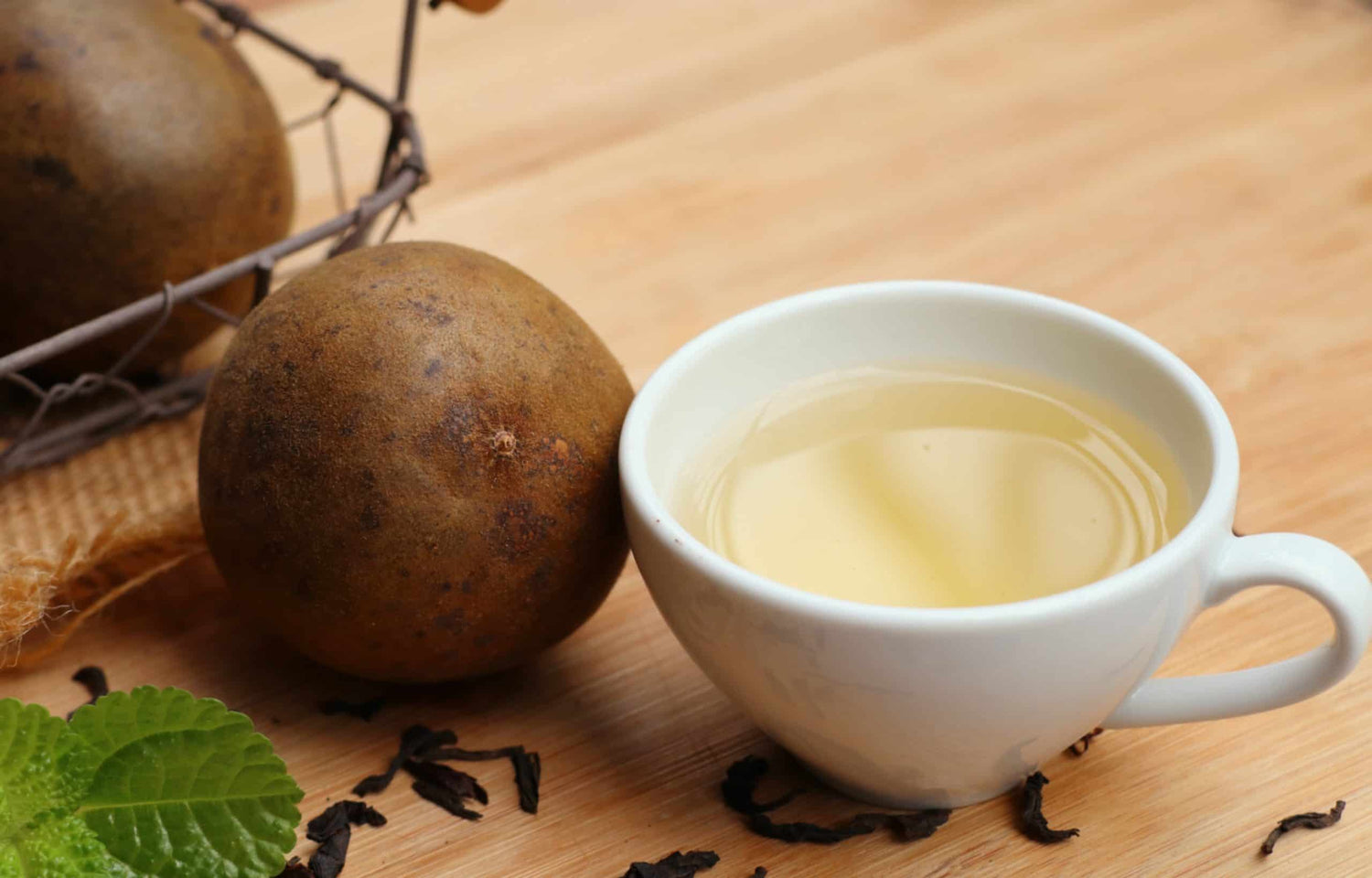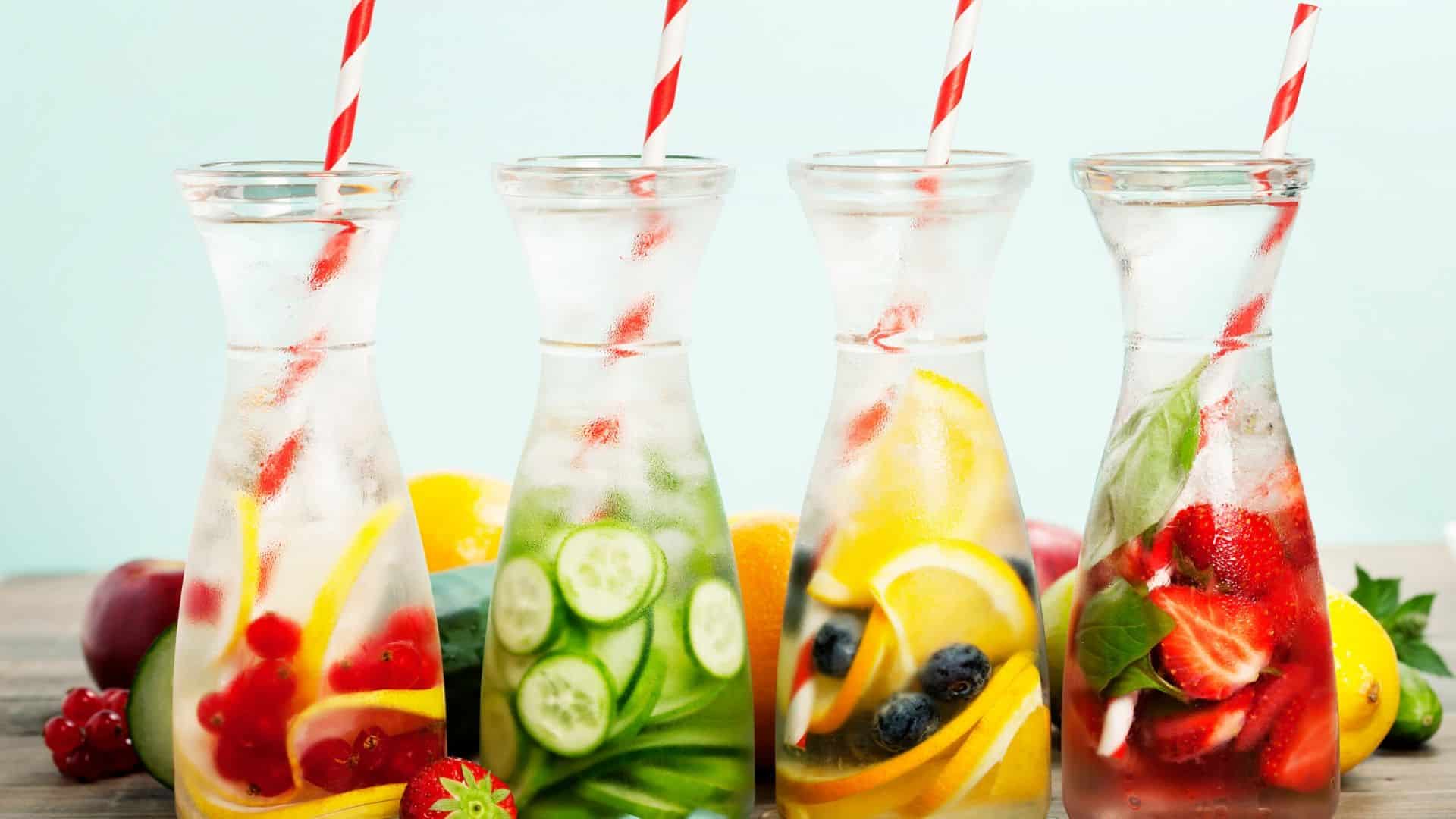There are only so many pleasant things in this life, and tasty food is one of them.
No one wants to give up things that taste great in the name of staying healthy.
Guess what? You don't have to!
Monk fruit sweetener contains absolutely zero calories and includes a few added health benefits too. Let's take a deeper look.


What is Monk Fruit?
Although monk fruit has existed in US markets for nearly a decade, it's still thought of as somewhat of a novelty item.
Meanwhile, stevia availability and use have skyrocketed over the past ten years as a low-calorie sugar substitute.
Monk fruit, also known as luo han guo or siraitia grosvenorii, grows naturally from trees in China's southern most provinces. (1)
In traditional Chinese medicine, monk fruit extract was an essential ingredient in healing tonics that help remove heat from the body -- especially during hot summer months.
Sounds like a great excuse to use monk fruit sweetener in your summer lemonade with a handful of mint, huh?
Reports show that Chinese immigrants introduced monk fruit to the United States as early as 1917. However, monk fruit didn't gain Food and Drug Administration (FDA) approval as a sweetener until 2010 -- about 15 years after Procter & Gamble filed a patent and figured out how to process and market it to the masses. (2)
For consumption as a natural sweetener, monk fruit is peeled, and the seeds are removed. The pulp is pressed into a juice, which is then dried, leaving you with crystals.
You can find monk fruit extract in crystallized form -- just like table sugar -- or syrup, which you can easily add to beverages, baked goods, and foods.
Monk Fruit Sweetener: Quick Facts

Before we dig into the health benefits of monk fruit extract and how it stacks up against stevia and table sugar, let's take a quick look at the general nutritional facts.
Monk fruit is interesting because its sweetness doesn't come from glucose or fructose; it comes from antioxidants called mogrosides.
- It has zero calories per serving, which means it's nonnutritive.
- It's low carb: monk fruit has zero carbs per serving.
- Monk fruit is up to 300 times sweeter than table sugar.
- It has a glycemic index score of zero.
- It's been used for hundreds of years with no known side effects. (3)
What are the Health Benefits of Monk Fruit?
Its status as a natural sweetener makes monk fruit extract an awesome addition to almost every diet.Won't Increase Blood Sugar Levels
Since monk fruit sweetener has a score of zero on the glycemic index, it's a perfect table sugar substitute for diabetics. If you're diabetic, make sure to read the ingredient list and don't take for granted that every monk fruit product on the shelf is low-carb. Some manufacturers may cut down their monk fruit extract with raw added sugar, agave, or artificial sweeteners that could spike your blood sugar levels.Good Sugar Replacement for Weight Loss
There's an argument that ALL sweet foods are bad because they trick your brain into thinking you're eating regular sugar when you're really not.
The idea follows that your sweet craving won't vanish, you'll just eat more to satisfy it.
There's no evidence to back this up.
Plus, weight loss shouldn't be torture!
You have a right to enjoy savory and sweet foods without too much restriction. In fact, your weight loss efforts are more likely to work if you don't torture yourself.
Since monk fruit sweetener has zero calories or carbs, it's perfect for replacing regular sugar for weight loss.
Fewer Side Effects Than Other Low-Calorie Sweeteners
Artificial sweeteners like aspartame, Splenda, maltodextrin, and saccharine are technically Generally Recognized as Safe (GRAS) by the FDA, but the jury is out on the long-term side effects. Experts say to avoid them if possible. Unlike aspartame, maltodextrin, and other zero-calorie sweetener options, monk fruit won't trigger bloating, gas, or upset stomach. Plus, monk fruit doesn't include any sugar alcohols.High in Anti-Inflammatory Antioxidants
Remember we mentioned that monk fruit extract gets its sweetness from antioxidants called mogrosides? Well, mogrosides have anti-inflammatory properties. That's why it's a favorite ingredient in traditional Chinese medicine. (4)Easy to Incorporate in Your Diet

Monk fruit extract does have a slight aftertaste that takes some getting used to.
However, it's extremely easy to replace regular sugar with monk fruit extract since it's available in granulated and syrup forms.
Smoothies, coffees, baked goods -- you name it!
Monk Fruit Sweetener Vs. Stevia

Both natural sweeteners function as great sugar substitutes because they don't affect blood sugar levels and have zero calories or carbs.
Some people may prefer monk fruit to stevia because the versions of stevia available in US markets may trigger bloating or have a bitter aftertaste.
Plus, stevia on American shelves is often cut down with high levels of maltodextrin.
Try each one and see what works best!
Stevia may work better for your drinks while you may prefer monk fruit for baked goods.
Monk Fruit Sweetener Vs. Cane Sugar

There's no question about it: When it comes to healthy eating, monk fruit is clearly the superior choice over table sugar.
Even Sugar in the Raw can't compare to Monk Fruit in the Raw because monk fruit has zero calories and no carbs.
The American sugar industry has spent tons of money marketing sugar to us while exploiting developing countries for sugar production.
Even "healthy" brands of raw cane sugar aren't good for your liver, skin, or waistline -- there's just no way around it.
On the other hand, people in Southeast Asia have consumed monk fruit for centuries, and they include some of the healthiest populations on the planet with the lowest obesity rates.
Plus, monk fruit is up to 300 times sweeter than regular sugar.


